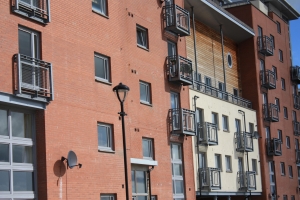 As real estate taxes skyrocket, many taxpayers have begun to look for ways to reduce their tax payments. One common method of accomplishing this is filing a tax appeal. However, since tax appeal procedure affords relief to very few taxpayers, the decision of whether to file an appeal will require a cursory understanding of how the process works.
As real estate taxes skyrocket, many taxpayers have begun to look for ways to reduce their tax payments. One common method of accomplishing this is filing a tax appeal. However, since tax appeal procedure affords relief to very few taxpayers, the decision of whether to file an appeal will require a cursory understanding of how the process works.
Real Estate Taxes are calculated by multiplying your municipality’s tax rate by your property’s assessment. Your tax rate cannot be appealed; however, your assessment can be. Your tax appeal must, therefore, be based upon proofs that the municipality has over-assessed your property. In most cases, the taxpayer’s opinion should be supported by an independent appraisal. For appeals filed in 2011, the date of valuation should be October 1, 2010. In most cases, your appraiser’s report should be restricted to comparable sales that occurred in your municipality during the year 2010.
With property values decreasing over the past few years, over-assessment is most likely to occur in a municipality that conducted its last revaluation of its properties at or near the height of the real estate market. According to some experts, the New Jersey Real Estate Market reached its peak during September of 2006. Since then, property values have plummeted. Over-assessment of your property will result in higher real taxes. In these cases, a tax appeal is crucial.
In many municipalities, however, the assessments are still much lower than the actual property values. This is in part due to the fact that some municipalities infrequently conduct revaluations. Those under-assessed municipalities will therefore operate under the sometimes faulty assumption that all of their properties are under assessed by the same ratio and will increase their tax rates accordingly.
However, there are cases when a property is assessed at a much higher ratio than the other properties in town. When this occurs, the aggrieved taxpayer can also file an appeal, but the rules are slightly different. When a taxpayer argues that his property is assessed at a higher ratio than the rest of the municipality, the rules require that the property owner furnish evidence that his or her assessment exceeds the average ratio by at least 15%.
The tax appeal procedure begins with an application which is generally due on April 1st. Filing fees for the application range between $5 and $150 depending upon the assessed value of the property. While property owners may represent themselves in the tax appeal proceeding, the applicant must have an appraiser at the hearing in all cases where an appraisal will be offered as evidence.
Continue Reading
 New Jersey Real Estate Attorney Blog
New Jersey Real Estate Attorney Blog


 All
All